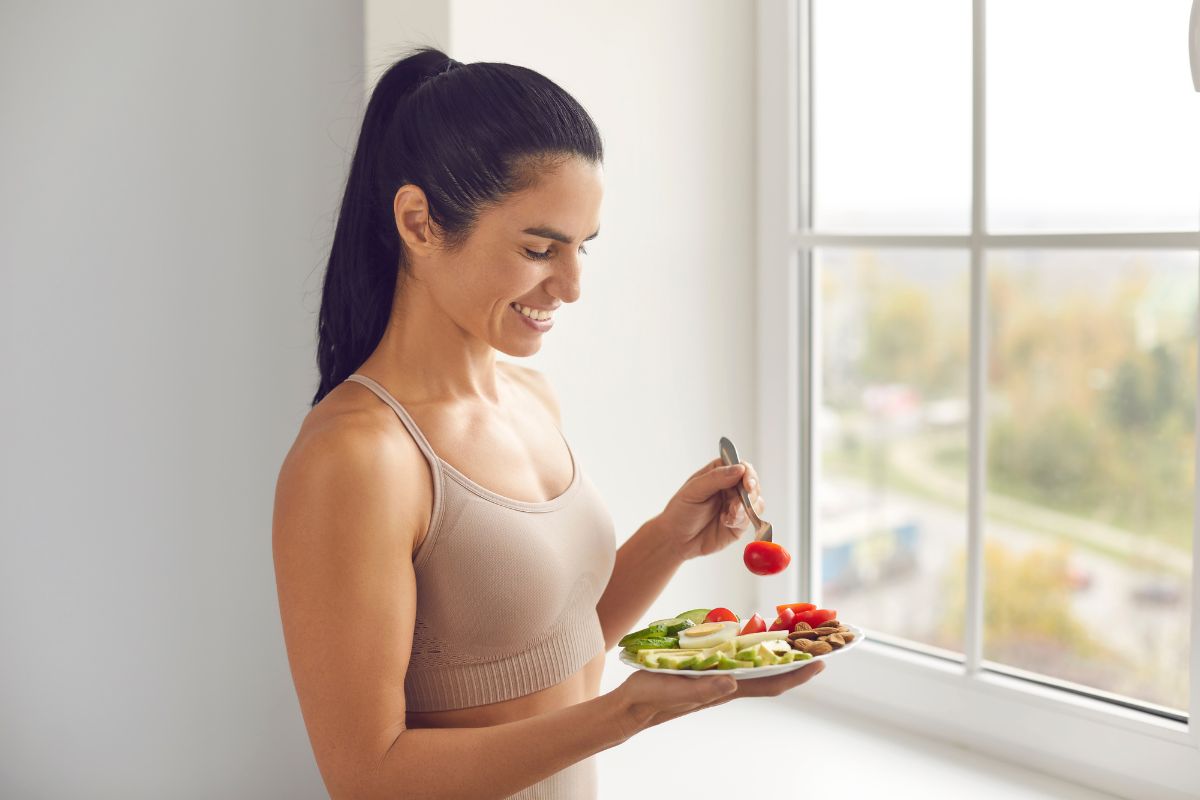What to Eat Before and After a Workout? Nutrition for General Fitness

Proper nutrition around your workouts can boost energy and recovery. In general, you should “fuel up” before exercise with a meal or snack rich in carbohydrates plus some protein and “refuel” afterwards with a combination of carbohydrates and protein, along with plenty of fluids. Below we outline guidelines for pre-workout and post-workout meals, including timing, macronutrient balance, hydration, and food examples, all backed by credible nutrition sources.
Pre-Workout Nutrition
Timing: Aim to eat a balanced meal about 1–4 hours before exercise to allow digestion and provide energy. For example, eating 2–3 hours prior ensures your body can absorb and use the fuel. If you need a snack closer to your workout, keep it small and easily digestible (e.g. a piece of fruit or yogurt 30–60 minutes before) to avoid gastrointestinal discomfort. Avoid heavy or very fatty meals right before exercise, as these can slow digestion and cause discomfort during training.
Macronutrient Balance: Pre-workout meals should emphasize carbohydrates (the body’s preferred fuel) with a moderate amount of protein. Carbohydrates (whole grains, fruits, starchy vegetables, yogurt, etc.) top up muscle and liver glycogen to power your muscles. Protein (from lean meats, dairy, eggs, or legumes) provides amino acids to “prime the pump” for muscle repair and recovery. Fats should be kept modest before exercise: a small amount of healthy fat (like nut butter or avocado) is fine if eaten 2–3 hours out, but avoid very high-fat or fried foods close to workout time. Including a little fiber is fine with a large pre-workout meal, but limit high-fiber foods if eating within an hour of exercise to prevent GI upset.
Pre-Workout Hydration: Begin exercise well-hydrated. A general guideline is to drink 16–24 fluid ounces (fl oz) of water about 2–3 hours before training, then another 7–10 fl oz of water about 10–20 minutes before starting. This helps top off fluid stores so you aren’t starting dehydrated. If your workout will last longer than 45–60 minutes or is very intense (especially in heat), include electrolytes by drinking a sports drink or adding salt to water. (As a rule of thumb from Johns Hopkins Medicine, have ~24 oz of a sports or electrolyte drink two hours before long activity.) Avoid waiting until you feel thirsty, as that often means you’re already behind on fluids.
-
1–3 hours before workout: Drink ~16–24 fl oz water.
-
10–20 minutes before workout: Drink ~7–10 fl oz water.
-
If exercising >45–60 minutes: Sip a sports/electrolyte drink during exercise to replace sodium and carbs.
Example Pre-Workout Foods: Aim for combinations of carbohydrates and protein that you tolerate well. Good pre-workout options include
-
Whole-grain toast with peanut (or almond) butter and banana slices.
-
Oatmeal (plain or with fruit) made with low-fat milk or served with Greek yogurt.
-
Greek yogurt (protein) topped with berries or sliced fruit.
-
Apple, pear, or banana with a spoonful of peanut, almond, or sunflower seed butter.
-
Trail mix of nuts/seeds and dried fruit (e.g. 2 parts raisins to 1 part nuts).
Each of these provides slow-burning carbs plus a little protein (and fat in nut butter), which together fuel your workout and help minimize muscle breakdown.
Post-Workout Nutrition
Timing: After exercising, your muscles are ready to take up nutrients for recovery. Try to eat a recovery snack or meal within about 30–60 minutes after finishing exercise. This “anabolic window” helps maximize glycogen replenishment and muscle protein synthesis. In general fitness, aim for a balanced meal within 1–2 hours post-workout. Waiting longer than ~2 hours can blunt recovery processes.
Macronutrient Balance: A post-workout meal should prioritize carbohydrates and protein. Carbs (especially high-glycemic carbs like fruit, rice, or potatoes) will quickly replenish the glycogen you burned during exercise. Protein is crucial to repair and rebuild muscle fibers; consuming 15–30 grams of protein in your recovery meal is generally recommended to maximize muscle protein synthesis. (For reference, that’s about 3–4 oz of chicken, fish, or beef, or ~2 cups of milk/yogurt.) Limit high fat at the immediate post-workout eating—fat can delay digestion. Save heavy fats for later; focus now on carbs + lean protein. Healthy fats (avocado, nuts, olive oil) can be included in the next meal.
-
Carbohydrates: Whole grains (brown rice, pasta, bread), starchy vegetables (potato, sweet potato), fruit, and dairy.
-
Protein: Lean meats (chicken, turkey, fish), eggs, dairy (milk, Greek yogurt, cheese), or plant proteins (beans, tofu, quinoa).
-
Fats: Keep it small in the immediate recovery snack. For example, nuts or avocado on whole grain toast later, but not too much fat on the first meal if eaten immediately post-workout.
Rehydration: Replacing lost fluids is as important as nutrients. A practical guideline is to drink about 16–24 fl oz (0.5–0.7 L) of fluid for every pound (0.5 kg) of body weight lost during exercise. (Weigh yourself before and after to estimate sweat loss.) Water is fine for shorter or lighter workouts. For longer or very sweaty sessions, choose a beverage with electrolytes and some carbs (e.g. a sports drink or chocolate milk) to help recovery. Continue sipping fluids over the next couple of hours until urine is pale straw-colored.
-
Replace every pound (~0.5 kg) lost with 16–24 fl oz of water or an electrolyte drink.
-
Consume more fluids (and salty foods or a sports drink) if sweating heavily.
-
Chocolate milk is a convenient post-workout drink: it provides fluid plus a good carb-to-protein ratio for recovery.
Example Post-Workout Foods: Good recovery meals combine carbs and protein. Some examples:
-
Low-fat chocolate milk (carbs + whey protein).
-
Recovery smoothie: blend fruit with Greek yogurt or a scoop of protein powder.
-
Turkey or chicken whole-grain sandwich/wrap with vegetables (fills glycogen and protein).
-
Greek yogurt parfait with berries and a sprinkle of granola.
-
Egg omelet or scrambled eggs with spinach and whole-grain toast.
-
Beans and rice or lentil curry with veggies (a mix of complex carbs and protein).
-
Cottage cheese or plain yogurt with fruit, or hummus with whole-grain crackers.
All of the above pair carbohydrates (to replenish energy) with protein (to rebuild muscle)—exactly what your body needs after fitness training.






